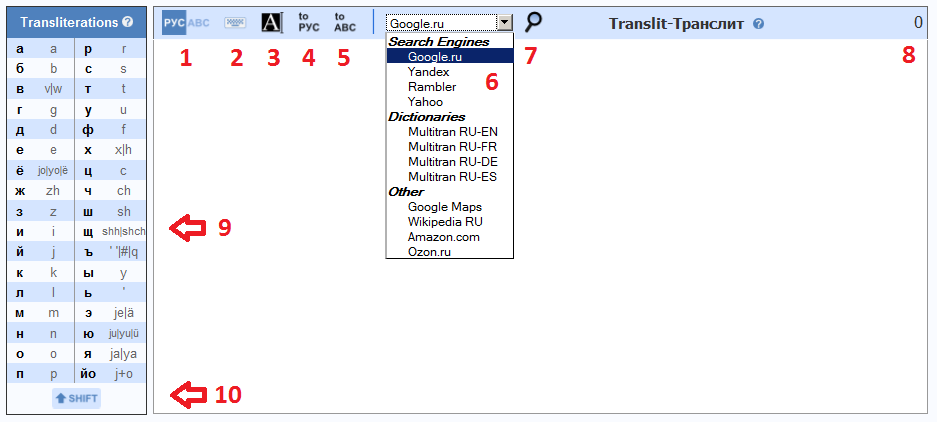

The other currently supported transliteration systems for Russian are: ALA-LC, GOST (1983) / UN (1987), ISO 9, and scholarly.
#RUSSIAN TRANSLITERATION ANDROID#
Enjoy millions of the latest Android apps, games, music, movies, TV, books, magazines & more.
#RUSSIAN TRANSLITERATION APK#
Other transliteration systems for Russian Download Russian Transliteration apk 1.0.2 for Android. The BGN/PCGN system for Russian was adopted by the BGN in 1944 and by the PCGN in 1947 for use in romanizing names written in the Russian Cyrillic alphabet. Both are aimed at establishing and maintaining uniform usage of geographic names, and their standards have been agreed upon by both party as a joint adoption. The BGN/BGCN is a virtual committee formed by the United States Board on Geographic Names (BGN), which is a United States federal body, and the Permanent Committee on Geographical Names (PCGN), an independent inter-departmental body for the use of the British government. Russian (, transliterated as russkiy yazyk) belongs to the East Slavic group of the Indo-European family. Russian can be written in Latin alphabet or in Cyrillic alphabet. A special case, when transliteration applied to Russian letters to represent them in Latin characters is called Translit. Transliteration is the method of representing letters or words of one alphabet in the characters of another alphabet or script.

Official language in Russia, Belarus, Kazakhstan, Kyrgyzstan, and Moldova, it also has the co-official status in other countries, and counts about 164 million speakers. The word Transliteration comes from Latin transliteratus ( trans- 'across' + littera 'letter'). There is no completely satisfactory system of transliteration. But BE CAREFUL: truncating to just a few letters will result in pretty unusable result lists.Russian ( русский язык, transliterated as russkiy yazyk) belongs to the East Slavic group of the Indo-European family. First, in citing the Russian sources, English translations will be used when available. This will get you those first letters followed by any letter or letters. It supports converting texts from the Latin to the Cyrillic alphabet and vice-versa. If you're searching for a term that could have different endings for different parts of speech (which is most words in Russian), experiment with truncation by putting in the main part of the word followed by an asterisk. Note: Not every Russian author or individual will be included in these records. Just type in latin and see your text convert automatically into cyrillic. In the case of the Russian language, sometimes you may need to write in Russian without having a Russian Keyboard at hand. sources, but for more historical transliteration schemes scroll up the article a bit.Īdditionally, the Library of Congress Name Authority File will show you the "preferred" name as well as variants that you might try out in your search. What is Russian Transliteration Transliteration means writing a language in an alphabet different from its original one. Here is a a decent Romanization Table from Wikipedia that will help you think about how certain Cyrillic letters may have been written in U.S. If the translation language pair doesn't include Russian as a target language, the transliteration checkbox is grayed out. The Transliteration function is available for the Russian language as a target language only. Remember that the sounds of Russian words can be written in quite a number of different ways using the English alphabet, so string together alternate spellings using an uppercase "OR" between spellings. The Russian decoder will transliterate the Russian translation to display the Russian text in Latin (English) characters. There are plenty of times when you'll be searching for a Russian term using the English alphabet.

Typically, search tools do better if you do NOT use the accent/diacritic marks that most romanizations add to the base alphabet letter.įor example: search "o" rather than "ó" Romanization/Transliteration


 0 kommentar(er)
0 kommentar(er)
